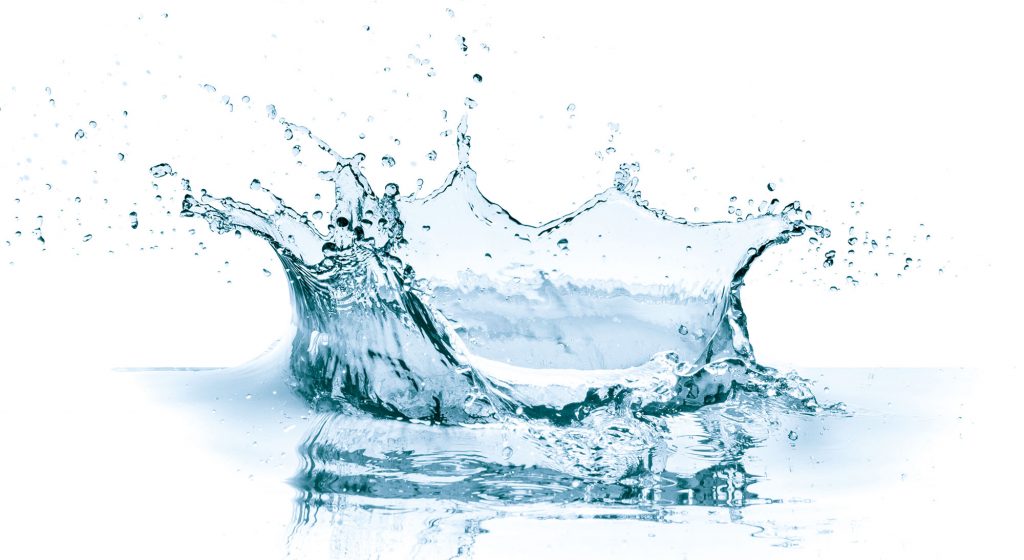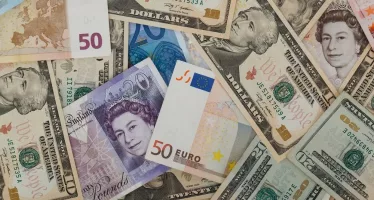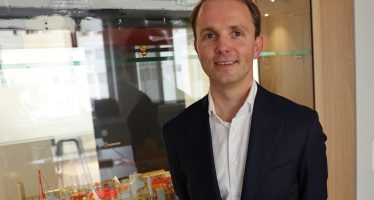TANQIA: Blueprint for Sustainable Treatment is Blazing Trails in Water-Strapped Region
TANQIA – the first privately held wastewater collection and treatment Utility in the UAE, and across the wider Middle East Region – is a company that doesn’t lack vision.

Executive chairman of the board Ibrahim Elwan says the firm is enhancing its already state-of-the-art Wastewater Collection and Treatment System (WWCTS) in Fujairah by driving down costs, promoting sustainability and accommodating future demand.
Across the Gulf Region, water supply depends on desalinated seawater and underground aquifers. Groundwater sources are shrinking, and increasing in salinity due to over-pumping and sea water ingress. The UAE’s water supply is predominately reliant on desalination and recharging underground sources using surplus desalinated water.
The UAE government has called for compliant recycled wastewater to be maximised as a substitute for desalination and underground extraction. This reduces investments in desalination and replenishes dwindling resources.
Enter TANQIA, a regulated utility developed by infrastructure development company Elwan Group. It has the exclusive mandate to design, finance, construct, own, operate, maintain and expand the WWCTS to meet forecast demand for the duration of the concession period.
Financing of the Greenfield WWCTS was made possible by the Royal Bank of Scotland, guaranteed by Hermes, the Guarantee Institution of the Government of Germany, and a loan from Abu Dhabi Fund for Development (ADFD). The Royal Bank of Scotland loan was paid off in 2017.
Greenfield was the first central wastewater system that the government of Fujairah made possible. It started in 2005 and was operational by early 2009.
The facility spans 16 hectares south of Qidfaa and is the Middle East’s first privately held wastewater collection and treatment utility. It produces high quality treated effluent thanks to its technology-driven approach to wastewater management. TANQIA has earned renown for protecting the Emirate’s environment and is globally recognised for its efficiency.
The forecast demand for wastewater services in the Concession Area forms the basis for investment strategy to cope with unexpected population growth rate of some eight percent. Water consumption increased in tandem, at an average annual rate of nine percent.
Clean water at the lowest costs is the goal. Tariffs can then gradually increase to help cover the cost of operation and maintenance. “The utility is actually an environmental firm whose emphasis is to extract valuable resources for ‘economic recycling’ while achieving the smallest feasible environmental footprint,” says Elwan.
TANQIA’s strategy has been to avoid assuming additional debt. New investment in increasing installed treatment capacity of the WWTP was deferred, and TANQIA put in place a replacement programme for the existing plant to ensure that it could cope increased influent. The utility could then focus on boosting services in the concession area to raise revenue generation.
The targets were achieved, and the WWCN has grown to cover 526 square km. Service coverage ratio had grown by 2020 to 87 percent. The remaining 13 percent will be used to create the new commercial city centre. Wastewater generated by this segment of the population continues to be evacuated by Fujairah municipality and delivered to the WWTP for treatment.
The support of the Government of Fujairah, the Municipality of Fujairah and the Government of Abu Dhabi were crucial to the extension, says Elwan.
As part of Expansion I project, four treatment trains will be added to the Installed Treatment Capacity of WWTP. The firefighting and fire alarm system of existing WWTP and Expansion I of the plant will be upgraded to comply with new civil defence guidelines. Expansion I will also entail civil works and interior fitting of the administration building, the installation of new pipeline and treatment for irrigation in compliance with WHO standard.
The contract for civil works was awarded to UAE firm Skyline Contracting Company, while the contract for electro-mechanical works related to the design, supply and erection was awarded to German company Bioworks.
ITC will be technically audited and its Bill of Quantities (BOQ) prepared by Emscher, one of the largest water utilities in Germany. The contract to Emscher has been awarded and the pricing of the rehabilitation works should be available before financial close. In its entirety, Expansion I will increase ITC of WWTP from the 16,000 m3/day in place today to 46,000m3/day when completed.
Under the Concession Agreement, TANQIA’s Greenfield WWTS comprised a wastewater treatment plant processing 16,000 m3/day and composed of two trains (8,000 m3/day each), 179 km of wastewater collection network (WWCN), and 30 pumping stations. Combined, this system was designed to provide services to 4,725 properties.
However, since 2008 (when Phase II of the Greenfield system was completed), TANQIA continued to expand its WWCN by 11 percent. The number of properties connected has increased from 4,725 to 8,252. This represents 19,530 accounts connected to the WWCN, while the population served by TANQIA’s wastewater services increased from around 37,187 up to 116,000.
Peak wastewater generation reached 27,000 m3/day despite the fact that Installed treatment capacity has remained since 2009 at 16,000 m3/day – and the deficit in installed treatment capacity will persist until Expansion I is completed.
Analysis of the data on water consumption within the concession area shows that the peak volume of wastewater generation increased at an average annual rate of 9.7 percent for 2002–2020, and in December 2020 stood at about 27,000 m3/day.
“This unprecedented growth in water consumption and generation of wastewater requires urgent new investment to increase the installed treatment capacity of the WWTP,” says Elwan. This is coupled with systematic and gradual adjustment in tariffs to encourage conservation and the introduction of water-saving devices to reduce consumption and offset the increase in rates.”
TANQIA-SIYANA – a company fully-owned by the developer, Elwan Group – operates the WWCTS, and has managed to successfully maintain the increase in inflow to 27,000m3/day through its intensive maintenance and replacement programme.
An internal and external network connection will be created to provide wastewater services to Stages I and II of Sheikh Mohamed bin Zaid City (MBZ City), adding another 46.5 km to TANQIA’s 440 km network. The construction of the pipeline and MBZ pump station were completed in 2018.
TANQIA has made progress with the Federal Electricity and Water Authority (FEWA) on developing its effluent distribution network to provide 1.3 billion gallons of high-quality, treated effluent once completed. “TANQIA is making a significant environmental contribution, generating high-quality effluent for substitution of desalinated and underground water in non-potable usage,” says Elwan. The plant produces tertiary treated effluent suitable for restricted irrigation and industrial use.
FEWA’s Effluent Balance Tank will also include a distribution network to deliver water to MBZ City and the farms in the northern area of the emirate. TANQIA insisted on having a polishing plant using state-of-the-art technologies to make the effluent suitable for unrestricted irrigation. This decision was made following the recommendations and standards of the WHO, and supportive data on the experience of California.
TANQIA is exploring energy-efficient and green energy projects that boost sustainability and provide energy- and cost-saving opportunities. It is undertaking a 6.6 MWp solar energy project. Stage 1, a rooftop solar panel system, is expected to cover more than 37 percent of the energy requirements of the WWTP’s buildings.
Stage 2 is a solar power plant that is expected to cover 40 percent of the energy requirements of WWTP in its entirety, and allow for the generation of revenues by exchanging cheap power by trading the remaining 60 percent to other industries.
Both stages are at the design and procurement stage, with contracts awarded for Stage 1 expected by Q2 2021, and work on Stage 2 due to begin by Q4 2021. Once completed, the new additions are expected to deliver gains – not only by reducing operational cost, but from a sustainability standpoint too.
“TANQIA’s Green Energy Project will reduce the carbon footprint by about 6,415 tons of CO2 per year,” Elwan says. “This is equivalent to the average emissions generated by 1,362 passenger vehicles driven for a full year.”
TANQIA’s dedication to the environment will continue with the installation of the PV solar power plant that is expected to reach a generating capacity of 10 MW, as electricity demand escalates in tandem with wastewater generation. “TANQIA will continue its aggressive commitment to ensuring clean environment in all of its operations,” promises Elwan.
The firm shares its expertise and plays a key role in developing technologies for the advancement of wastewater treatment plant design around the world. It is assessing options to integrate well-developed processes known as “constructed wetlands” and “reed-technology” into its technology portfolio. This not only reduces energy consumption, it also contributes to providing habitat for wildlife. Products considered as waste before will be fully converted into valuable resources, exemplifying true circular economy.
“In this region, we are facing shortages in fertile land but missing out opportunities making our beautiful country more self-sustainable, by disposing resources which can make it fertile at the same time,” notes Elwan. TANQIA converts the by-product sludge into valuable soil with the reedbed technology. Current projections show that up to 65,000m2 of land are required until 2037, without any addition of chemicals and without any input of energy, other than sunlight. Valuable soil will be produced during a natural process within a period of about seven to ten years.
It can then be made available for landscaping or farming. Given the minimal degree of automation and mechanical equipment required, this can be implemented at least-cost and with minimum CAPEX-requirement.
In 2018, TANQIA SIYANA FZC was certified with the internationally recognised occupational health and safety management system standard OHSAS 18001:2007, alongside the environmental management system standard ISO 14001:2015 and the quality management system standard ISO 9001:2015 for its services on water and wastewater projects and systems.
TANQIA had identified measures at aiming reducing its environmental and carbon footprint well before ratification of the Paris Agreement. Currently, 13 measures have been identified aiming at the reduction of carbon dioxide emissions, some prior to the agreement. Others were implemented after its ratification and are already contributing to carbon dioxide emission reductions.
Overall, by the end of 2020, a total of 47,296 tons of CO2 were saved, contributing to the UAE’s effort of meeting the Paris Accord’s targets.
However, measures identified to have the most important impact on TANQIA’s climate protection efforts are part of Expansion I after its completion. TANQIA has extended its reach to explore and pursue projects beyond the UAE’s borders. Pursuing such projects is testament to the award-winning firm’s unerring emphasis on quality, efficiency and sustainability at every step, with protection of the environment a top priority.
In projects across the Middle East and the Mediterranean countries of the EU, TANQIA insists that no treated effluent would be discharged below the tertiary stage, and that it would also be polished. The polishing process targets mainly viruses, bacteria and parasites, but also involves the removal of remaining suspended solids, biological oxygen demand (BOD) and other traces of pollutants that may be left after secondary effluent treatment.
TANQIA’s principled approach provides multiple opportunities for reuse of the polished tertiary treated effluent for economic purposes, although the major impediment in the countries of the Gulf Region to achieving this goal is the pricing of wastewater services.
“This will take time, of course, and the involvement of wastewater utilities in identifying downstream potential economic uses for polished tertiary treated effluent.”
TANQIA has been working on a solution that entails containerised polishing of tertiary treated effluent. The results, said Elwan, are encouraging. “TANQIA is now moving to the final stage of the technology by using solar energy as a source of power for the polishing process,” he says. “TANQIA is looking at introducing containers with solar panels, with a view to reducing the cost of polishing wastewater and the cost of desalination. This will require at least another two years of data collection, examining the quality of the output and the energy use per gallon of water to determine the commercial potential of the process.”
TANQIA is working closely on this solution with Water4All – a water treatment unit supplier from the Netherlands – as it strives to commercialise small-scale units for small suppliers and individual consumers. Such a decentralised, self-sustainable solution clearly presents enormous opportunities for driving down the cost of wastewater treatment. It is just the latest in a long line of innovations that positions TANQIA at the forefront of its sector, and serves to further validate this progressive firm’s award-winning, technology-driven approach to wastewater management.
You may have an interest in also reading…
Dollar Strains — Our Currency, Your Problem: Specialised Investment Research and Analysis from PGM Global Inc.
Unlike their DM counterparts, EM central banks have started to cut rates, in some cases aggressively, to offset weakening growth
Pragmatic Play: The Name Itself Reveals Philosophy of iGaming’s Champion
As one of iGaming’s top providers, Pragmatic Play has transformed from a slot studio in a congested market to an
Karl Fredrik-Staubo – Youth, Energy, Agility, & the Courage of Conviction: Meet the Golar Go-Getters
As the youngest CEO of a NASDAQ-listed company, Karl Fredrik Staubo brings energy and verve to his role at Norway’s


















































































